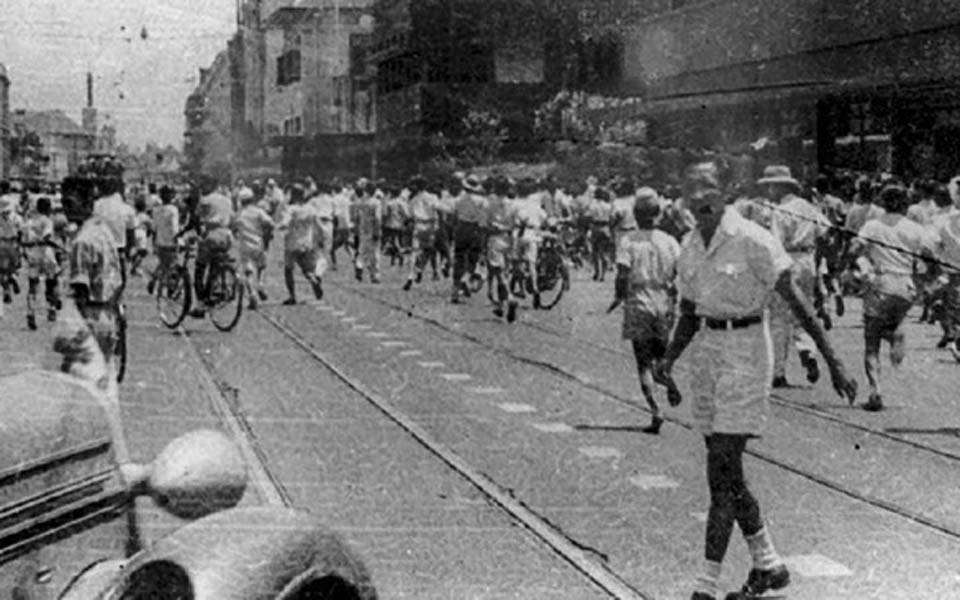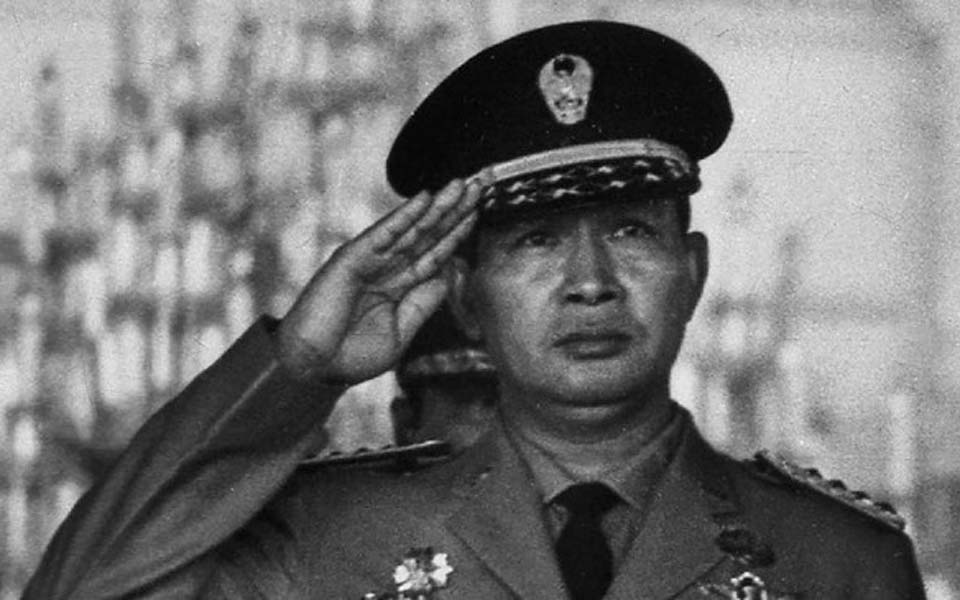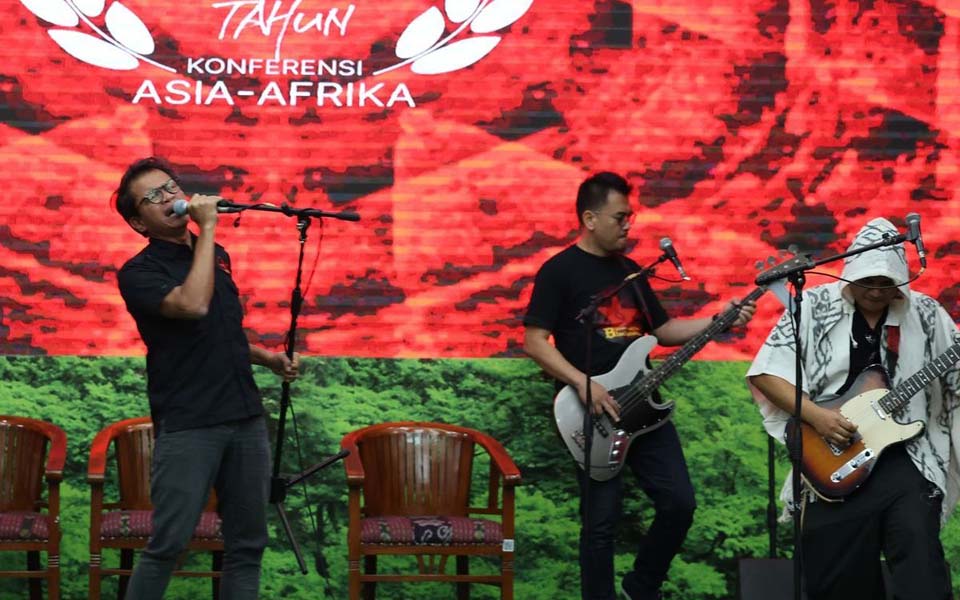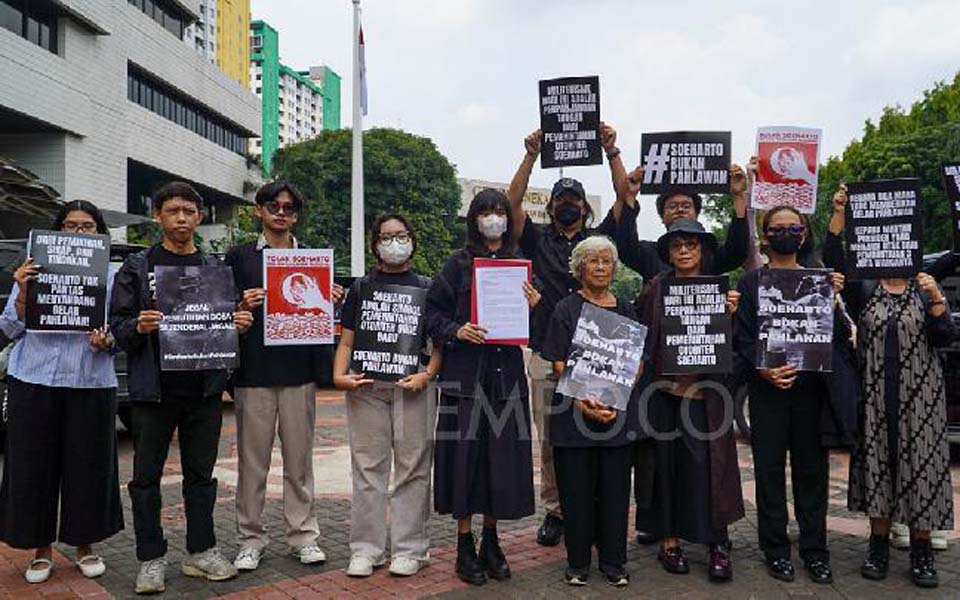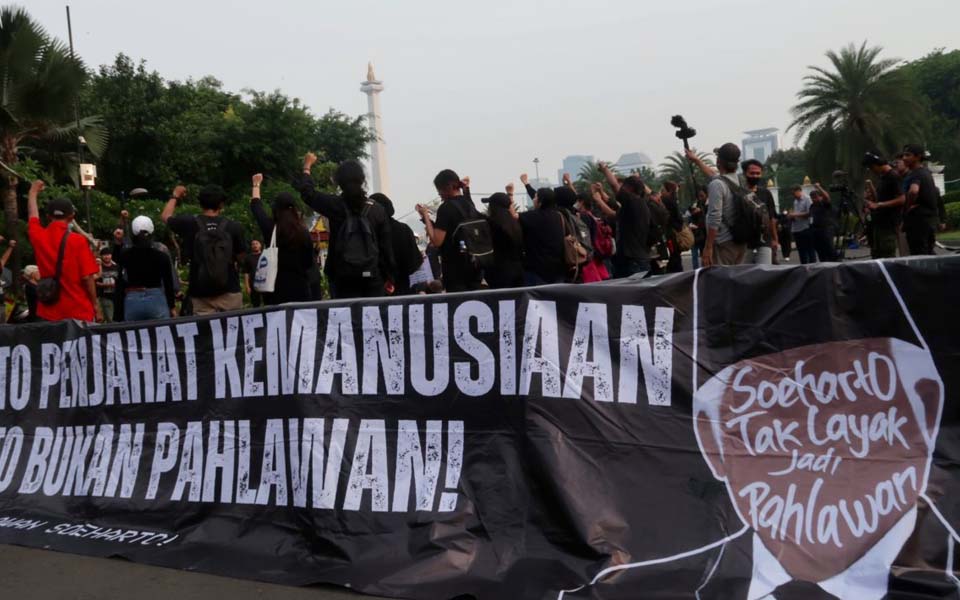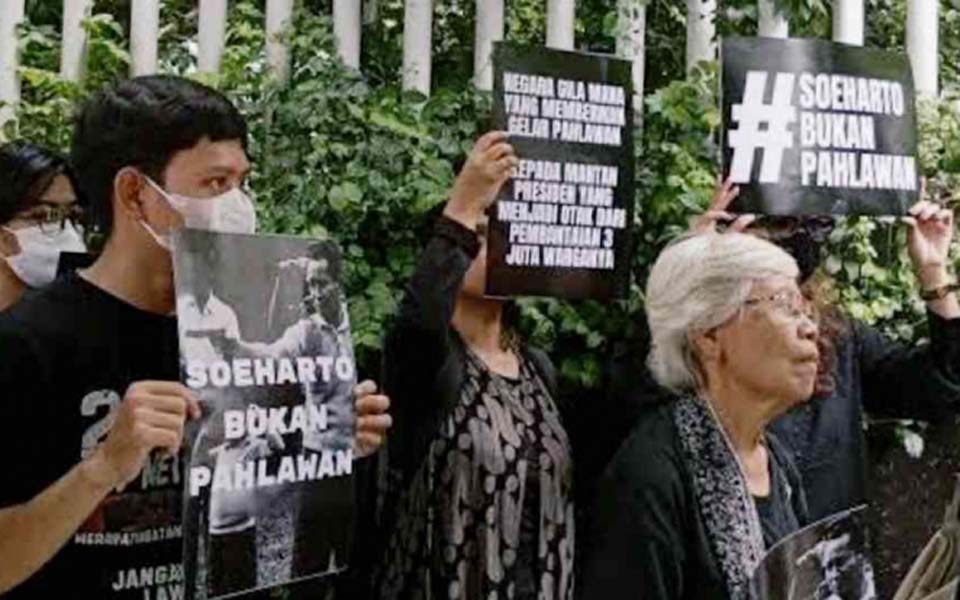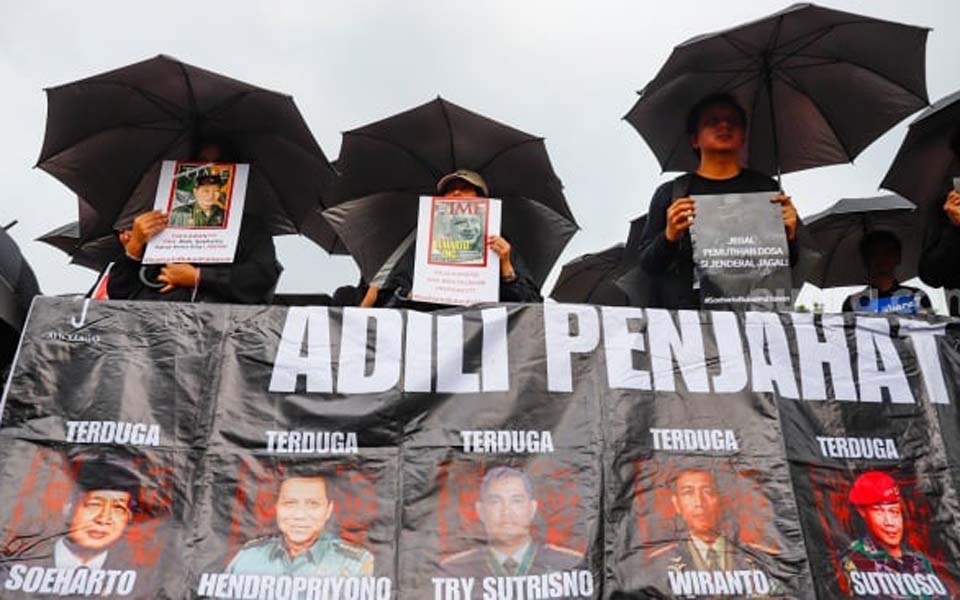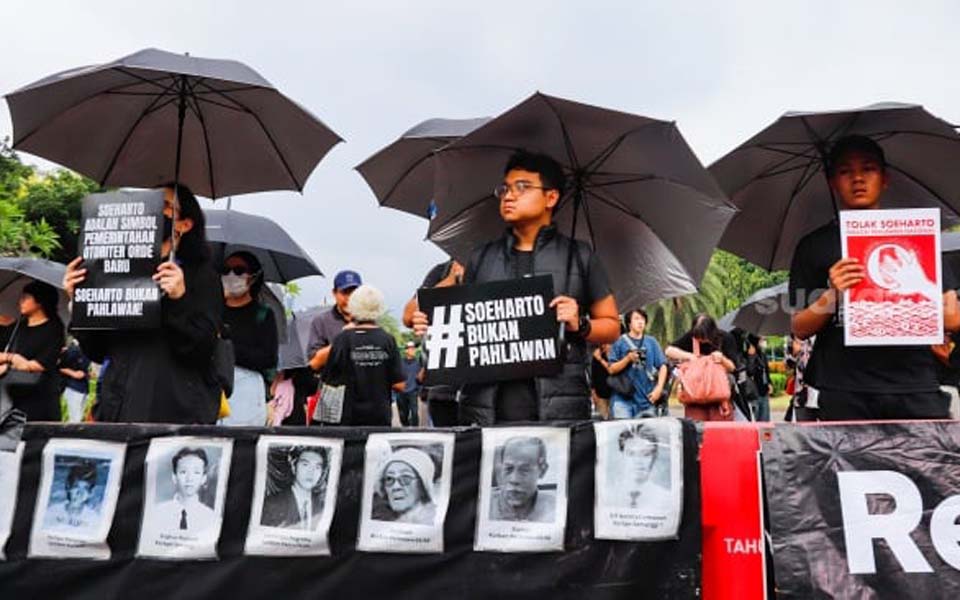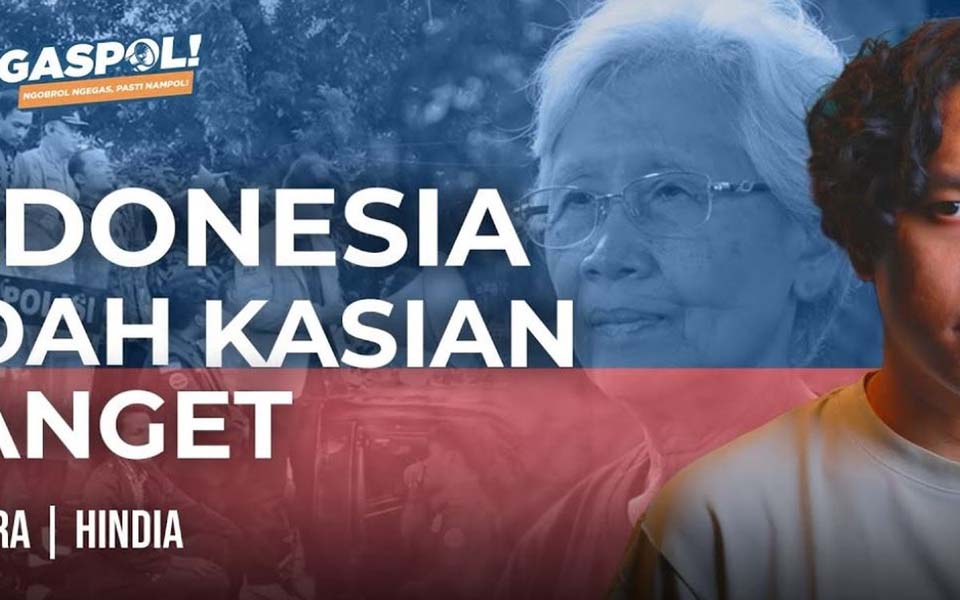Diah Harni Saputri, Maria Rita, Jakarta – Human rights activists, academics and journalists have initiated the formation of a people’s tribunal into the 1965 mass killings. The tribunal is planned to be held in the Den Haag, Netherlands, in November 11-13.
According to Nursyahbani Ktjasungkana who is coordinating the International People’s Tribunal on 1965 crimes against humanity in Indonesia (IPT 1965), the IPT 1965 will be held to demonstrate that the genocide and crimes against humanity which have still not be acknowledged by the state did in fact occur.
Preparations for the formation of the IPT 1965, said Nursyahbani, have begun with the gathering of evidence from 13 regions, interviewing witnesses, compiling documents from the investigation by the National Human Rights Commission (Komnas HAM) into 1965, including investigative articles by Tempo Magazine, and the results of research by investigators from a number of overseas and Indonesian universities.
“We are also preparing prosecutors and judges who are experienced in handling cases of genocide and crimes against humanity in a number of different countries”, said Nursyahbani during a meeting at Tempo’s offices on Tuesday August 11.
Nursyahbani was accompanied by Professor Saskia E. Wieringa, who has been researching the 1965 affair for 30 years, and Valentina Sagala from the Women’s Institute executive board.
Saskia explained that with regard to the 1965 affair it will be demonstrated that genocide and crimes against humanity did in fact take place. “There are three prerequisites, namely that it was planned, that there was intent and that it was widespread”, she said.
The irony, said Saskia, is that although the 1965 killings occurred 50 years ago, its impact upon the victims and their families along with those who are critical of the official version of events is still very tangible.
For example, those who were accused with involvement in the 1965 affair have become exiles and cannot return home to Indonesia. In addition to this, there is still a lot of propaganda inspired by hatred against the victims, the victim’s families and communities that have tried to uncover the crimes of 1965, along with continued acts of violence against those who have tried to expose the 1965 affair.
Although it will be in the form of a tribunal, said Valentina, there will not be any attempt to indict people in a criminal court as suspected by many.
This is because the tribunal’s verdict will not be binding in legal terms, but will instead hand down a moral verdict so that the Indonesian government can formulate policies on the 1965 affair. The Den Haag was chosen as the venue to organise the IPT 1965 because the city is symbolic of endeavors to uphold human rights.
The verdict handed down by the IPT 1965 will be made public in 2016. It will then be handed over to the United Nations Human Rights Council in Geneva, Switzerland, in the hope that it will issue a UN resolution. This will open up the possibility of the international community pressuring Indonesia to respond to the indictments and verdict handed down by the IPT 1965.
It is hoped said Nursyahbani, that the IPT 1965 will receive support from the wider community and the Indonesian government, including the international community.
[Translated by James Balowski for the Indoleft News Service. The original title of the report was Pengadilan Rakyat Tragedi 1965 Akan Diadakan di Den Haag.]






